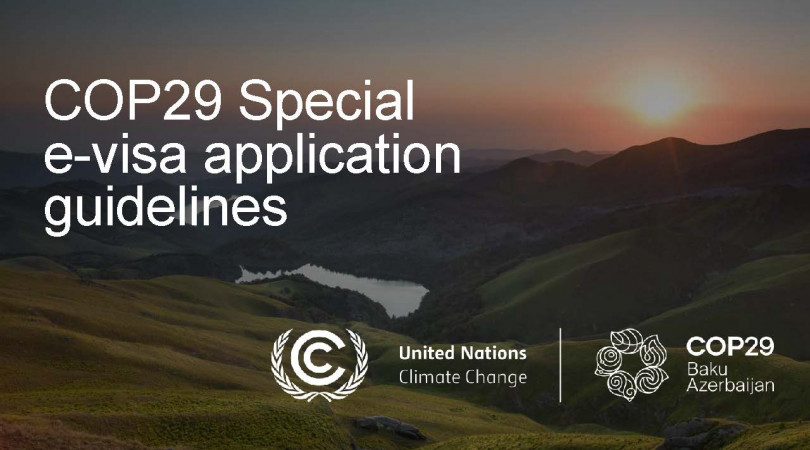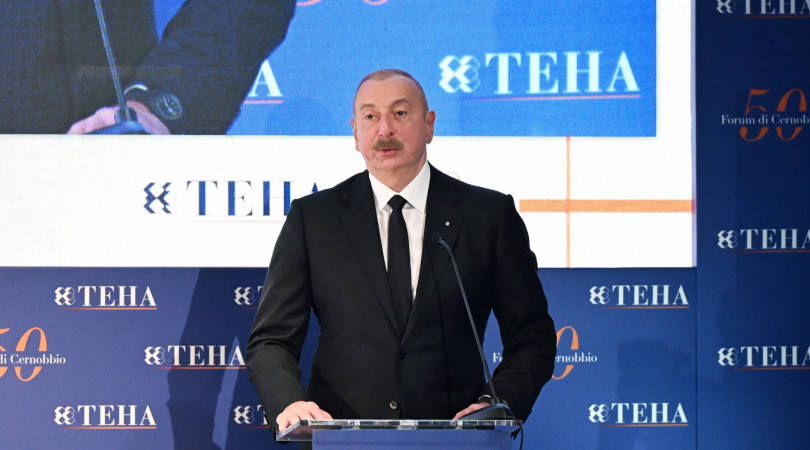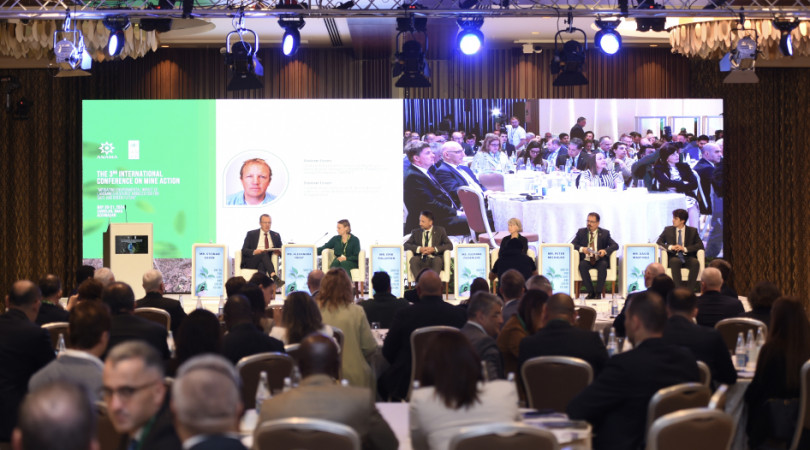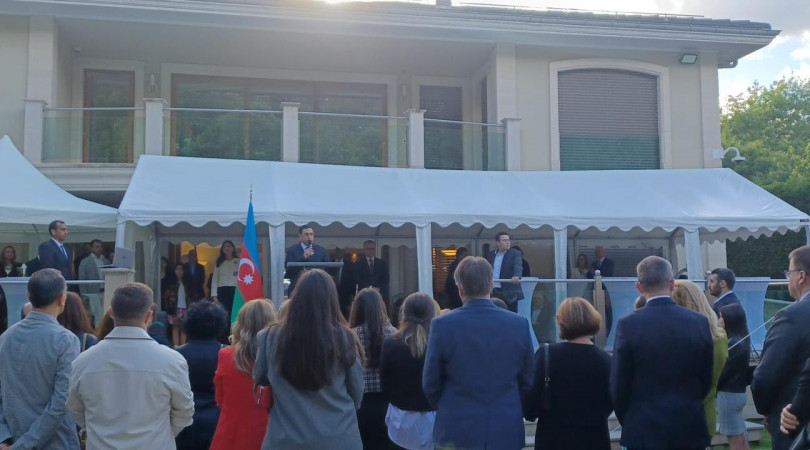Human Rights Council (HRC)
Human Rights Council (HRC)
The Human Rights Council (HRC) is regarded as one of the most important multilateral frameworks within the United Nations (UN) system where political issues are discussed.
The Council was created on the basis of the United Nations General Assembly resolution 60/251 on 15 March 2006. It replaced the former UN Human Rights Commission. HRC meets for at least 10 weeks per year at the UN Office in Geneva in three regular sessions usually taking place in March (4 weeks), June (3 weeks) and September (3 weeks).
Except being multilateral platform for exchange of views over various aspects of human rights, the HRC also serves to monitor the implementation of the obligations of States deriving from international conventions and to issue relevant recommendations.
The Council collects data about human rights situation around the world through Universal Periodic Review process, special procedures mandate holders, working groups, fact-finding missions and other mechanisms, and adopts relevant decisions and resolutions. It has also responsibility to put forward recommendations for the UN General Assembly in advancing international legal framework on human rights.
The Republic of Azerbaijan has been member of the Human Rights Council for the term 2006-2009. In 2008-2009, the Republic of Azerbaijan has served as the Vice-President of the HRC.
While holding observer status at the HRC, the Republic of Azerbaijan actively contributes to all deliberations at the sessions of the Council, including through delivering statements during the interactive dialogues, contributing to the drafting processes of HRC resolutions and organising side events dedicated to the topics pertinent to the agenda of the Council.
Top priority of the Republic of Azerbaijan in its engagement with the Human Rights Council is to draw the attention of the international community to the violated rights of more than 1 million Azerbaijani internally displaced persons (IDPs) and refugees generated as a result of the occupation of more than 20 percent of its territories by the Republic of Armenia, and to call upon the states to take necessary measures for restoring those rights.
Another priority of Azerbaijan at the HRC is to promote the implementation of SDGs in the context of the implementation of human rights obligations. In particular, relying on its national best practice in the field of transparent, efficient and accountable public service delivery, Azerbaijan, in cooperation with other states having established similar public service models, is endeavouring to highlight the importance of human rights context of the public service delivery at the HRC.
The Permanent Mission of the Republic of Azerbaijan to the UN Office and other International Organizations in Geneva, in cooperation with the Permanent Mission of Kenya organized a side event on the margins of the 35thsession of the HRC (6-23 June 2017) dedicated to the topic of “Promotion of SDGs and Human Rights through efficient, transparent and accountable public service delivery: cases of Azerbaijan and Kenya”. Panel of the event composed of the representatives of both countries, researcher on governance issues from the Basel Institute on Governance, as well as senior representative from the Canada-based NGO of International Institute on Sustainable Development.
The Joint Statementinitiated and delivered by Azerbaijan during the 36th session of the HRC (11-29 September 2017) on the same subject was co-sponsored by 80 UN Member States.
During the 37th session of the HRC (26 February - 23 March 2018) Azerbaijan together with Georgia, Kenya, Thailand and Turkey submitted a draft resolution entitled “Promoting human rights and Sustainable Development Goals through transparent, accountable and efficient public services delivery” which was unanimously adopted by the HRC. The resolution was co-sponsored by 92 UN Member States.
The Resolutionacknowledges that non-discriminatory, efficient, accessible, accountable and transparent public services delivery consistent with citizens’ needs and feedback is one of the key components in building an anti-corruption environment in the public sector and contributes to the promotion and protection of human rights and the implementation of 2030 Agenda.
Bearing in mind that the increased application of technological innovations and electronic services in public services delivery can play an important role in reducing corruption by promoting transparency and accountability and can improve the environment and tools necessary to foster public access to information on preventing and combating corruption, the resolution encourages States with effective models for the delivery of public services to share their best practices with other States, especially with developing States, through bilateral, regional and multilateral cooperation frameworks, and calls upon all States to establish, taking into account best practices from other States, as appropriate, a transparent, accountable and efficient public service system.
Under item 5 of the 38th session of the HRC (18 June – 6 July 2018) Azerbaijan delivered a joint statement supported by a cross-regional group of 126 Member States on new challenges facing the UN human rights system. The Joint Statementlisted the expectations of the UN Member States from the new High Commissioner on Human Rights while underlining global human rights challenges including deteriorating democratic values, ongoing and protracted conflicts, inequality, poverty and racial and other forms of discrimination observed on a daily basis around the world.
In particular, the statement highlighted that while exercising duties in relation to the UN Member States, the new High Commissioner is called:
- a) to bear in mind the existing challenges and national contexts and circumstances of the Member States;
- b) to display more objectivity, independence and impartiality in his/her actions;
- c) to strictly uphold the UN Charter, UNSC and UNGA resolutions to respect sovereignty, territorial integrity and domestic jurisdiction of the Member States;
- d) to ensure that all human rights are universal, indivisible, interdependent and interrelated;
- e) to favour constructive dialogue and cooperation with the Member States and to support their national human rights programmes.
On the margins of the 39th session of the HRC (10-28 September 2018), to take stock of the recent examples of good practices, progress and efforts by States, international organizations and other relevant stakeholders, to link anti-corruption measures and human rights, including with a view to prevent and address the direct impacts of corruption on the full enjoyment of human rights Azerbaijan together with Ecuador organised a side event “The impacts of corruption in the full enjoyment of human rights at all levels” on 18 September 2018. Panel of the event included Permanent Representatives of Azerbaijan and Ecuador in Geneva, Chairperson of Human Rights Council Advisory Committee, representatives of the OHCHR, Inter-Parliamentary Union and UNCTAD.
On 26 February 2019, Mr. Elmar Mammadyarov, Minister of Foreign Affairs of the Republic of Azerbaijan, addressed the high-level segment of the 40th Session of the UN Human Rights Council. In his statement Minister Mammadyarov pointed out the crucial role of the Office of the High Commissioner for Human Rights at a time of rise of human rights challenges, in particular, forceful displacement of millions of people and racial and other forms of discrimination globally, and emphasized the importance Azerbaijan attaches to the UN Human Rights Council mandated to promote and protect all human rights through cooperation and genuine dialogue.
He informed the session about the large-scale programs carry out by the Government of Azerbaijan to ensure full enjoyment of all human rights and fundamental freedoms by its citizens and underlined the commitment of Azerbaijan to the implementation of the 2030 Agenda for Sustainable Development, which embodies all human rights, including economic, civil, cultural, political, social rights, and the right to development.
Delivering his statement on the day when Azerbaijan commemorated the 27th anniversary of one the brutal pages of the on-going armed conflict between Armenia and Azerbaijan – the Khojaly Genocide committed by Armenia – Minister Mammadyarov stressed that this conflict still represents a major threat to international and regional peace and security, human rights and development.
On 9 April 2019, the Permanent Mission of the Republic of Azerbaijan to the UN Office and other International Organizations in Geneva and the UN University for Peace organized the Conference entitled “Impacts of Illegal Economic Activities in Conflict Areas on Human Rights”, at the Palais des Nations in Geneva, Switzerland.
The Conference aimed at discussing adverse human rights impacts of illegal economic and business activities in conflict-affected areas that have been increasingly challenging the global community for decades, was held in two sessions. The first session took stock of the current international legal framework to address illegal economic activities in conflict-affected territories and their human rights impact, focusing, inter alia, on the existing accountability gap concerning the violations of international law generated by activities of business enterprises in these territories. The second session shed light on the third party obligations for illegal economic and other activities in conflict-affected territories dwelling on the cases of Angola, Azerbaijan, Democratic Republic of Congo and Sierra Leone.
Ambassador Vaqif Sadiqov, the Permanent Representative of Azerbaijan to UNOG, Mr. Francisco Rojas Aravena, the Director of the UN University of Peace and Mr. Hikmat Hajiyev, the Head of Foreign Policy Affairs Department of the Presidential Administration of the Republic of Azerbaijan delivered the opening statements. Speakers and international experts taking part at this conference focused on illegal economic activities in conflict zones and their impact on human rights, illegal use of resources and violation of property rights of internally displaced persons, highlighted the responsibility of respective states for the companies illegally operating in the conflict zones.
Deputy Chairman of the State Committee for Affairs of Refugees and Internally Displaced Persons of the Republic of Azerbaijan Mr. Fuad Huseynov participated in the 41stsession of the HRC held on 24 June – 12 July 2019.
On 28 June 2019, Mr. Huseynov made a dignitary statement before the HRC on the measures that the Republic of Azerbaijan has taken regarding persons who became internally displaced as a result of the use of force and occupation of the territories of the Republic of Azerbaijan by the Republic of Armenia.
Deputy Chairman highlighted that as a result of activities pursued by the national authorities in the last 18 years’ time, the poverty level among the IDPs has dropped from 75% to 12%. Furthermore, Mr. Fuad Huseynov noted that 7.1 billion USD were allocated for addressing the social problems of IDPs.
Deputy Chairman also noted that only durable solution to the solving the problems of the IDPs is the solution of the Armenia-Azerbaijan Nagorno-Karabakh conflict which would enable the exercising of the basic rights of the IDPs - the right of return that has also been stated in the reports of the United Nations Special Rapporteurs during the course of their country visits.
During the 41stsession (24 June – 12 July 2019)of the HRC, the Permanent Mission of the Republic of Azerbaijan to the UN Office and other International Organisations in Geneva organized a side event entitled “Human Rights of Internally Displaced Persons in Azerbaijan: Progress and Challenges” on 1 July 2019.
The side event focused on the progress made and the challenges faced by the Republic of Azerbaijan on the situation of IDPs in the country. The participants were informed about the measures taken by the Government of the Republic of Azerbaijan for the solving of the problems of the IDPs.
The side event was moderated by Ambassador Vaqif Sadiqov, the Permanent Representative of Azerbaijan to UNOG.
Panelists - Mrs. Cecilia Jimenez- Damary, the Special Rapporteur on the Human Rights of Internally Displaced Persons, Mr. Fuad Huseynov, Deputy Chairman of the State Committee for Affairs of Refugees and Internally Displaced Persons of the Republic of Azerbaijan, Ms. Farah Ajalova, Deputy Director of the Department for Human Rights of the Ministry of the Foreign Affairs of the Republic of Azerbaijan, Ms. Elisabeth Rushing, Researcher of the Internal Displacement Monitoring Center (IDMC), and Ms. Khalisa Shahverdiyeva, Co-founder of the Code for Future Project touched upon various aspects of the issue of internal displacement.
During interactive dialogue with the UN High Commissioner on Human Rights at the 42nd session (09 – 27 September 2019) of the HRC, Pakistan on behalf of Organization of Islamic Cooperation (OIC) urged the High Commissioner to continue to pay due attention to the human rights violations of the people suffering from conflicts, including Armenia-Azerbaijan Nagorno-Karabakh conflict.
Furthermore, the OIC Group expressed its deep distress over the plight of more than one million Azerbaijani displaced persons and refugees resulting from Armenian aggression and called upon the High Commissioner to take a principled position in ensuring restoration of violated human rights of Azerbaijani IDPs and refugees in line with the relevant UNSC resolutions on the conflict.
Azerbaijan participated actively in the HRC Social Forum held on 1-2 October 2019, under the topic of “The promotion and protection of the rights of children and youth through education”. In its intervention, Azerbaijan highlighted the important role of education for children, in particular, during the times of the armed conflict. In particular, the participants of the Social Forum were informed about the results of the armed aggression of Armenia and violated human rights of children.
Azerbaijan has taken over the chairmanship of the Non-Aligned Movement for the period of 2019-2022 at the Baku Summit of the Movement that was hold on 25-26 October 2019. The Non-Aligned Movement (NAM) is a group of 120 Member Statesand 17 Observer States.
Permanent Mission of the Republic of Azerbaijan to the United Nations Office and other International Organizations in Geneva in its capacity as the Chair of the NAM Chapter in Geneva actively participates in the debates and discussions of the Human Rights Council and takes measures to strengthen the articulation of NAM’s agreed positions, as contained in the Final Document and other relevant documents agreed/issued by the Coordinating Bureau, in the Human Rights Council as instructed by the Heads of State andGovernment in the Final Outcome Documentof the Baku Summit.
On December 3rd, 2019, Azerbaijan delivered a statement on behalf of the Non-Aligned Movement during the Second Intersessional Meeting for dialogue and cooperation on Human Rights and the 2030 Agenda for Sustainable Development which was organized in accordance with the Human Rights Council resolution 37/24 on the promotion and protection of human rights and the implementation of the 2030 Agenda for Sustainable Development. The text of the statement can be found in the"Statements by the NAM Chair"section of the NAM webpage.
On 12 February 2020, the Permanent Mission of the Republic of Azerbaijan in its capacity as the Chair of the Geneva Chapter of the Non-Aligned Movement organized an Open-ended Discussion on the Right to Development and possible ways in achieving its practical implementation. The event aimed at creating an opportunity for exchange of ideas among various stakeholders on ways and means to achieve the practical implementation of the right to development, including through adoption of the an internationally legally binding instrument; discussing the transformative paradigm of the right to development and its increasing relevance to address contemporary global challenges and its role in implementing the 2030 Agenda.
Azerbaijani Chairmanship frequently holds NAM Ambassadorial Meetings with the participation of the heads of the Geneva-based international organizations. On 17 February 2020, the Permanent Mission of the Republic of Azerbaijan in its capacity as the Chair of the Geneva Chapter of the NAM convened Ambassadorial meeting of the NAM Member States with the participation of H.E. Amb. Elisabeth Tichy-Fisslberger, President of the United Nations Human Rights Council attended the NAM Ambassadorial meeting as a guest speaker.
Amb. Elisabeth Tichy-Fisslberger updated Ambassadors of the NAM Member States on the preparations for the 43rd session of the Human Rights Council scheduled to take place from 24 February to 20 March 2020 and exchanged views with NAM representatives on the important issues related to the agenda of the HRC in 2020.
On February 25, 2020, the Permanent Mission of the Republic of Azerbaijan delivered a Joint Statement on behalf of the Non-Aligned Movement and the European Unionduring the high-level panel discussionon commemorating the twenty-fifth anniversary of the Beijing Declaration and Platform for Action, adopted at the Fourth World Conference on Women in 1995. The text of the statement can be found in the "Statements by the NAM Chair"section of the NAM webpage.
During the 43rdsession of the Human Rights Council (24 February - 13 March 2020), Azerbaijan delivered NAM Statements at the General Debates on Item 2 (Annual report of the United Nations High Commissioner for Human Rights and reports of the Office of the High Commissioner and the Secretary-General), Item 3 (Promotion and protection of all human rights, civil, political, economic, social and cultural rights, including the right to development)and Item 4 (Human rights situations that require the Council’s attention)of the Human Rights Council. The statements can be found in the "Statements by the NAM Chair"section of the NAM webpage.
On 26 February 2020, Mr. Ramiz Hasanov, Deputy Minister of Foreign Affairs of the Republic of Azerbaijan addressed the high-level segment of the 43rd session of the UN Human Rights Council. In his statement Deputy Minister reaffirmed the importance Azerbaijan attaches to increased co-operation with the UN, including the Office of the UN High Commissioner for Human Rights, informed the session about long-ranging reforms carried out in Azerbaijan aimed at further strengthening of democracy, rule of law, and promotion and protection of human rights, including on the recent parliamentary elections. His full statement can be found in the “Speeches” section of the Permanent Mission’s website.
Updated: 16 April 2020


















